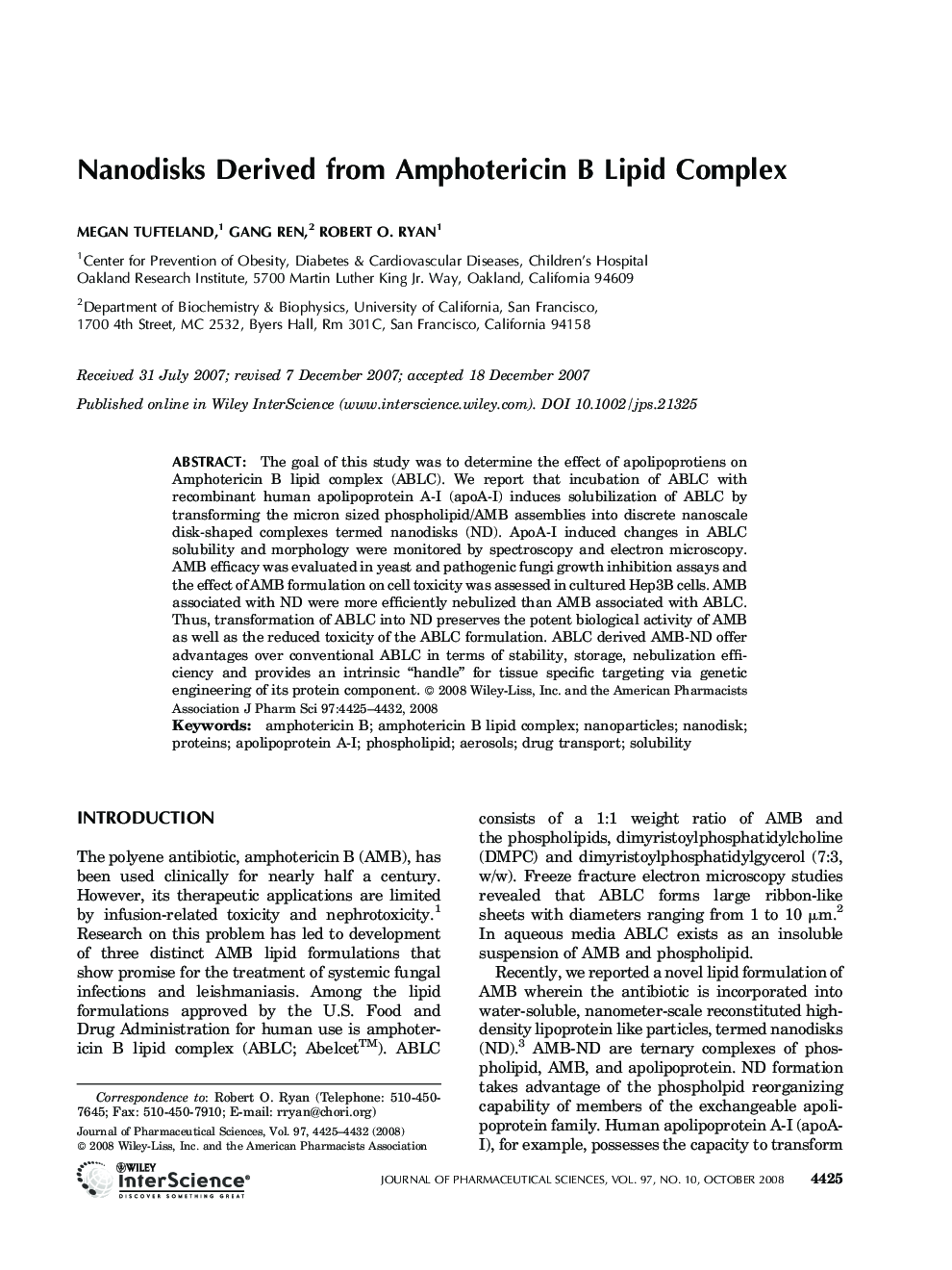| Article ID | Journal | Published Year | Pages | File Type |
|---|---|---|---|---|
| 2485340 | Journal of Pharmaceutical Sciences | 2008 | 8 Pages |
Abstract
The goal of this study was to determine the effect of apolipoprotiens on Amphotericin B lipid complex (ABLC). We report that incubation of ABLC with recombinant human apolipoprotein A-I (apoA-I) induces solubilization of ABLC by transforming the micron sized phospholipid/AMB assemblies into discrete nanoscale disk-shaped complexes termed nanodisks (ND). ApoA-I induced changes in ABLC solubility and morphology were monitored by spectroscopy and electron microscopy. AMB efficacy was evaluated in yeast and pathogenic fungi growth inhibition assays and the effect of AMB formulation on cell toxicity was assessed in cultured Hep3B cells. AMB associated with ND were more efficiently nebulized than AMB associated with ABLC. Thus, transformation of ABLC into ND preserves the potent biological activity of AMB as well as the reduced toxicity of the ABLC formulation. ABLC derived AMB-ND offer advantages over conventional ABLC in terms of stability, storage, nebulization efficiency and provides an intrinsic “handle” for tissue specific targeting via genetic engineering of its protein component.
Keywords
Related Topics
Health Sciences
Pharmacology, Toxicology and Pharmaceutical Science
Drug Discovery
Authors
Megan Tufteland, Gang Ren, Robert O. Ryan,
